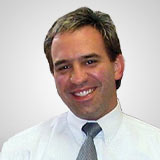From a risk and money management standpoint, traders and poker players are eerily similar, and professional risk manager Mike Toma reviews the qualities that make for success in both arenas.
A lot of traders compare playing poker to actually trading, and a lot of the same skills that excellent poker players have go into good trading as well.
Our guest today is Mike Toma; he’s a risk manager and will talk to us about that. He’s a trader as well, so we’ll get that perspective. Mike, what are some of the correlations between successful poker players and good traders?
Well, I’m not a poker player, so I’m a risk manager by trade. I think sometimes, though, the poker/trader analogies have maybe gone a little too far, but there’s one that I thought was really interesting, particularly from a risk perspective.
There was a gentleman—actually won the World Series of Poker in 2000—Chris Ferguson. He had a goal to take $1 and to make it into $10,000 playing poker. He wanted to prove that using good risk management and good money management techniques would allow you to get there.
Basically, what he did, he had few rules: He said I’m only going to play premium hands; I’m only going to risk 5% of my bankroll at any one session; and the last rule was when I’m building my bankroll, I’m going to start betting more, playing more, and when I start losing, I’m going to reduce my size.
How many times do we see traders who actually, when they lose, they start increasing their size? It’s actually the worst thing they could do.
The sad part is it actually works most of the time. You get back that loss that you had, but the one time it doesn’t, you’re out of business.
Chris Ferguson really brought to light a very interesting risk and money management technique that really could be applied to trading.
I also know from when I’m watching poker on TV that the players are making decisions about their bets with incomplete information. They don’t know what their opponents have in terms of cards, they don’t know what’s coming up in the flop, and so they’re making those decisions. That sounds like it’s a lot like trading as well.
It is, but they have enough information to make that decision. They have two cards in their hand.
As traders, we have information about price patterns, markets, set-ups. The best risk managers I’ve ever met—and I’ve worked in the corporate sector, I’ve worked in the trading sector, obviously—and I see the best risk managers around the poker tables.
It’s funny, I was challenged by this, and I actually took an account—a simulated account—and I applied the same principles. Now, I’m not a really good poker player; I don’t know how to bluff or other things, but I know how to recognize good hands, and I just took advantage of those and obviously folded when I didn’t have one.
I actually took $500 of simulated money and I’m up to $74,000 now. My goal is to get to $100,000.
Really, I think at this point it has shown that it’s really about the big four in trading: It’s about bankroll, managing bankroll; knowledge, Chris Ferguson is obviously an expert at what he does, and as traders we need to be as knowledgeable as possible; risk management, which clearly the risk management aspects were played out in this scenario; and discipline, tremendous discipline not to go off tilt or not to break down and really follow a plan.
So to bring that back to trading again, are we talking about making sure you’re disciplined with your stop losses, and then only risking so much of your account at any one trade?
Yeah, it’s really about building your bankroll, and how you do that is as you increase your bankroll, and as you increase your account size, to start increasing those contract sizes…not the other way around.
I see it happen too many times where you have really good traders with good hopes and good desires, and then in a week, they’re just done and out of the business. Because in this business, no bankroll, game over.
Yeah, it’s follow that methodology. It’s so much easier to kind of get back that trade after having a losing one, and it works most of the time, but slowly build your bankroll, slowly build your definition as a trader, and then you’ll be building your business as well.










